May 29th, 2024
10 ways to attract new property owners in 2024
Property Management
Property Management
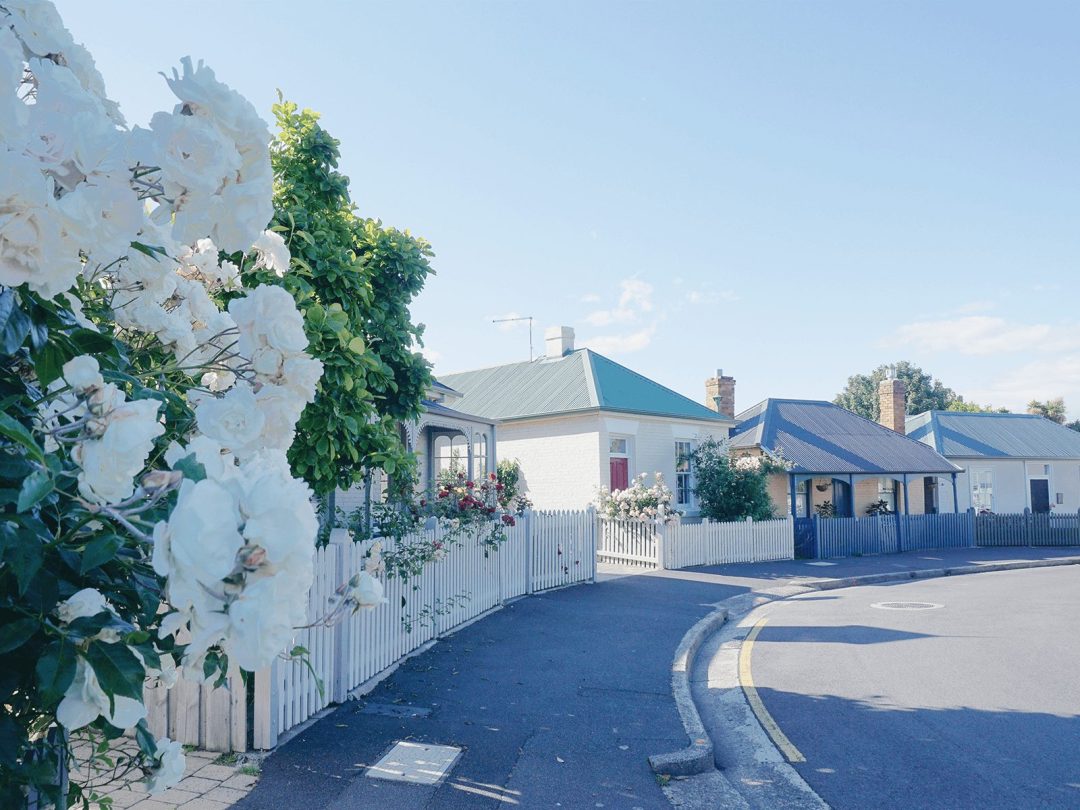
As winter unfolds, painting the landscape in vibrant hues, Property Managers across the country focus on potential winter maintenance requests. Tenants may dream of cosy nights by the fireplace, but ensuring their comfort and safety throughout the colder months hinges on the condition of your properties. Don’t wait for the first chilly morning to scramble! By having a process ready to go, you’ll be able to effectively tackle the maintenance requests as they roll in. This guide equips you to tackle the most common winter maintenance requests efficiently.
The problem: Cold weather and poor ventilation breed mould and condensation. Tenants might report musty smells, visible mould growth or foggy windows.
The fix:
Improve ventilation: Encourage tenants to use exhaust fans during showers and cooking. Consider installing bathroom and kitchen ventilation systems if needed.
Why winter? Cold air holds less moisture than warm air. When warm, humid air from showers or cooking encounters cold surfaces in winter, the humidity condenses on windows and walls, creating ideal conditions for mould growth.
Who to contact: For ventilation system installation, consult a licensed HVAC contractor.
Preventative tips: Advise tenants to keep exhaust fans running for a few minutes after showering or cooking. Weather permitting, open windows briefly to allow moisture to escape.
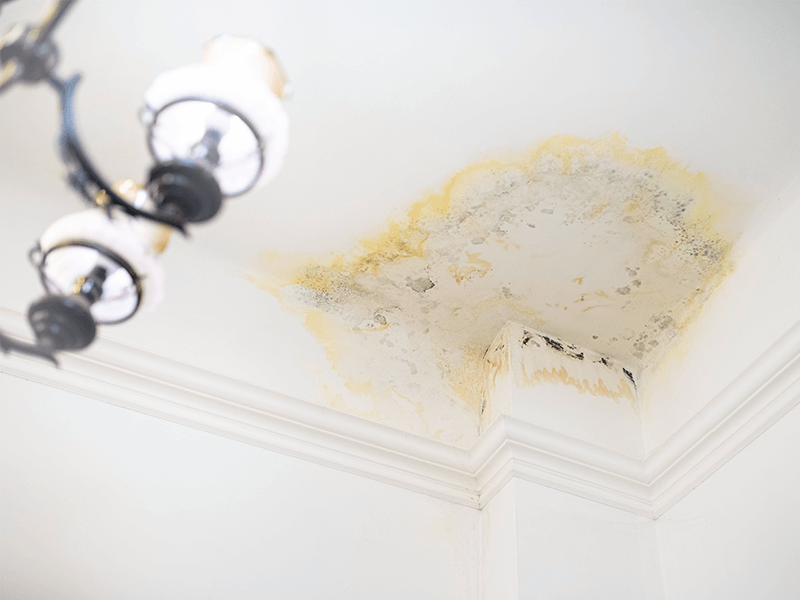
The problem: Heavy winter rains can overwhelm clogged gutters or damaged drainage systems, flooding basements or crawl spaces.
The fix:
Clean gutters: Schedule pre-winter gutter cleaning to remove leaves and debris.
Inspect drainage: Clear clogged downspouts and grade the soil away from the building to ensure proper drainage around the foundation.
Why winter? Frozen ground prevents water from adequately soaking into the soil, increasing runoff during heavy rains. Clogged gutters exacerbate the problem by overflowing and directing water towards the foundation.
Who to contact: You can hire a professional cleaning service or a handyman for gutter cleaning. For drainage issues, consult a licensed plumber or landscaper.
Preventative tips: Install gutter guards to minimise debris buildup throughout the year. Regularly check downspouts for clogs and ensure proper grading around the foundation.
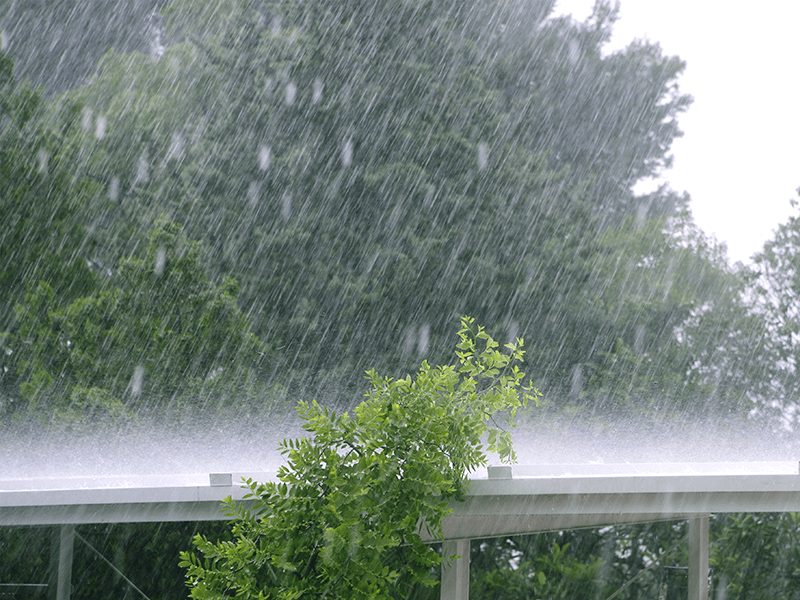
The problem: Inadequate ventilation and insulation can lead to drafty rooms, higher heating bills, and the potential for mould growth (see above).
The fix:
Seal leaks: Check for air leaks around windows, doors, electrical outlets and plumbing fixtures. Seal any gaps with caulk or weather stripping.
Upgrade insulation: For better temperature control, consider adding insulation to roof or crawl spaces and exterior walls.
Why winter? Cold outside air seeps into poorly sealed and insulated spaces, making rooms feel drafty and requiring the heating system to work harder, leading to higher energy bills.
Who to contact: For air sealing and insulation upgrades, consult a licensed insulation contractor.
Preventative tips: Advise tenants to report any drafts immediately. Consider including weather stripping kits in tenant welcome packages.
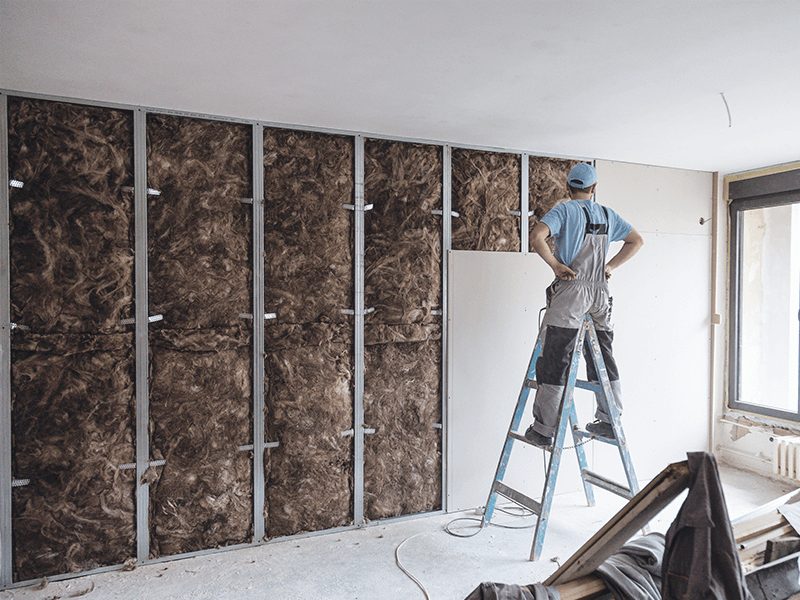
The problem: Tenants enjoying cosy fires might need to pay more attention to proper safety measures, leading to chimney fires or carbon monoxide poisoning.
The fix:
Inspection and maintenance: Schedule pre-winter inspections of fireplaces and chimneys by a qualified professional.
Educate tenants: Provide tenants with clear instructions on safe fireplace use, including proper ventilation and disposal of ashes.
Why winter? Increased fireplace use during colder months raises the risk of chimney fires due to creosote buildup. Closed windows for warmth can trap carbon monoxide emitted from malfunctioning fireplaces.
Who to contact: Hire a certified chimney sweep for pre-winter inspections.
Preventative tips: Provide tenants with a fireplace safety guide outlining proper use, maintenance and ventilation procedures.

The problem: Malfunctioning smoke alarms or faulty heaters pose a serious safety risk. Tenants might report chirping alarms, no heat or uneven heating.
The fix:
Test and replace: Test smoke alarms monthly and replace batteries as needed.
Annual maintenance: Schedule annual maintenance for heating systems to ensure proper functionality and safety.
Why winter? Winter’s increased reliance on heating systems makes potential malfunctions a greater safety concern. Dead batteries in smoke alarms can go unnoticed during warmer months.
Who to contact: For smoke alarm maintenance and replacement, consult a licensed electrician. Schedule annual heating system maintenance with a qualified HVAC technician.
Preventative tips: Provide tenants with instructions on smoke alarm testing and battery replacement. Remind tenants to report any heating issues promptly.
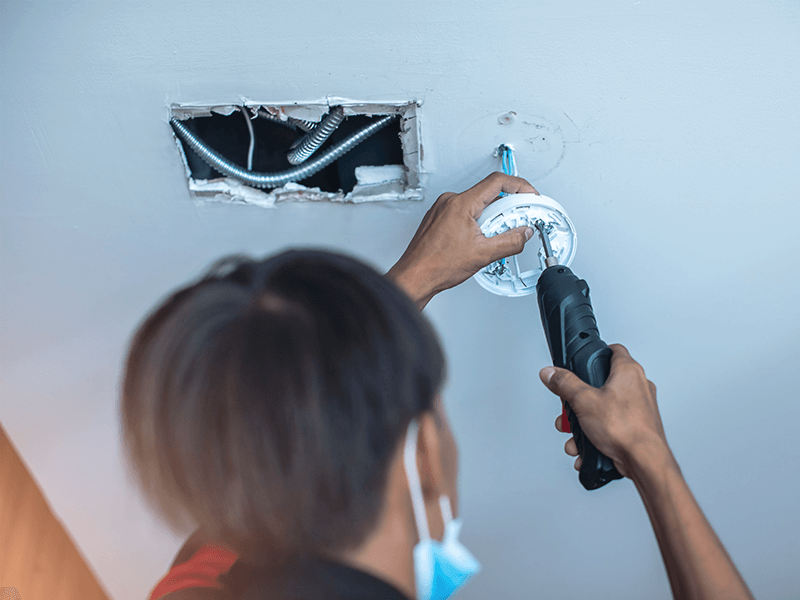
The problem: Leaves, debris, and even ice dams can clog gutters in winter, preventing rainwater from draining correctly. This can lead to overflowing gutters, damaging the roof, fascia boards, foundation and landscaping.
The fix:
Clean gutters: Schedule pre-winter gutter cleaning to remove leaves, debris, and ice dams. Depending on the amount of leaf fall, you may also need to clean gutters in some regions in late autumn and early spring.
Install gutter guards: Consider installing gutter guards to minimise debris buildup throughout the year. These come in various mesh or screen styles and can be a worthwhile investment to save time and money on gutter cleaning.
Why winter? Falling leaves and cold temperatures can create a double whammy for gutters. Leaves clog the gutters, and freezing temperatures can cause ice dams to form, further restricting water flow.
Who to contact: You can hire a professional cleaning service or a handyman to clean the gutter.
Preventative tips: Install gutter guards to minimise debris buildup throughout the year. Regularly check downspouts for clogs and ensure proper grading around the foundation. In colder climates, consider installing heated gutter cables to prevent ice dams.
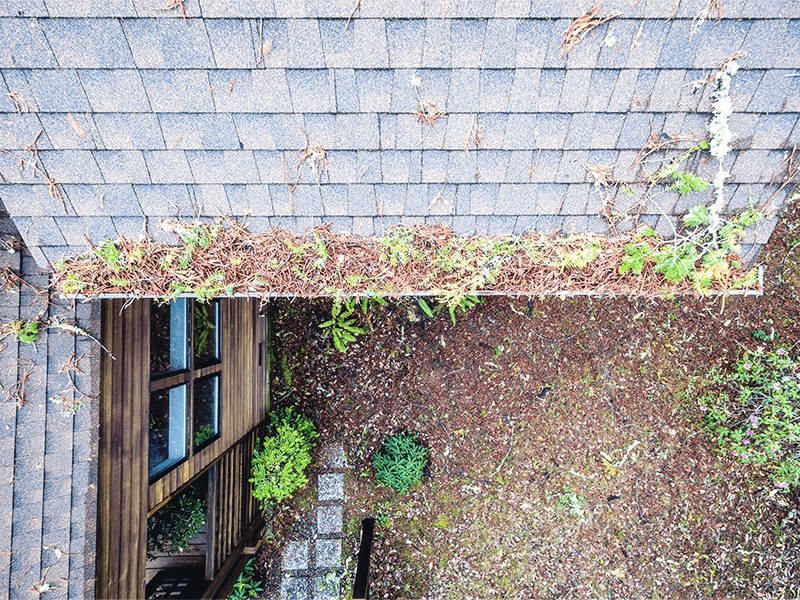
By staying ahead of these potential problems well through winter, you can ensure that your tenants pass through the cold months smoothly. A proactive approach to maintenance ensures their comfort and safety and minimises the need for reactive repairs, saving you time and money in the long run. So, embrace winter with confidence, knowing you have the tools to keep your tenants happy and your properties thriving all winter long.
Do you want to sharpen your Property Management skills? We publish engaging blog posts packed with valuable insights. Dive into some of our latest ones: The best towns to nab a winter rental in 2024; Here are the top 7 ways to get involved in charity as a Property Manager and Refreshing, redecorating and revitalising your office space.
Disclaimer: This guide is intended for informational purposes only and should not be construed as professional advice. For specific maintenance issues, consult with a qualified professional.